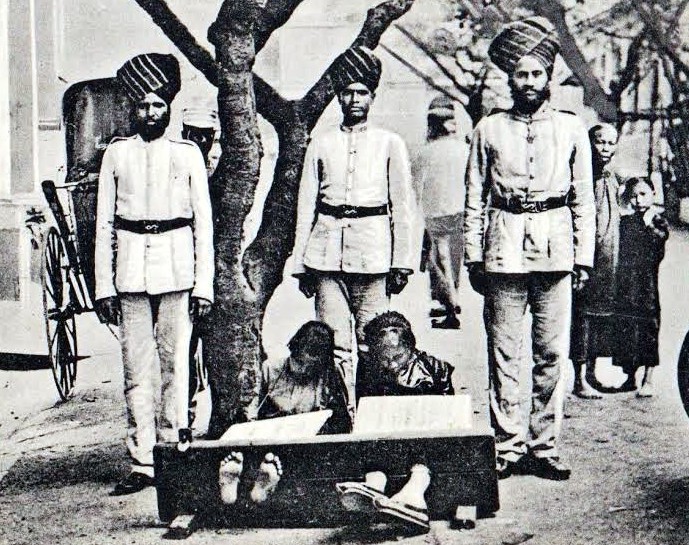European powers used the phrase “The White Man’s Burden” to justify their colonisation of non-European societies. It was during the era of European colonialism. This phrase argued that Europeans had a duty to “civilise” and “modernise” non-white societies, which they perceived as inferior and backward.

However, scholars and activists have heavily criticised this idea as a tool of oppression and imperialism. They argue that perpetuating the notion that one group of people is superior to another and has a duty to civilise and modernise them perpetuates systems of inequality and power imbalance.
Furthermore, European colonisation often disrupted or destroyed the systems of government, education, and technology that many non-European societies had developed on their own. Therefore, the idea that colonisation was necessary for the progress and development of non-European societies is simply untrue.
The Role of the British Indian Army in Hong Kong
During colonial times, the British Indian Army enforced British rule and suppressed uprisings. They helped maintain law and order in places like Hong Kong.
During the British Raj, Indians were deployed as cops in Hong Kong. Loyal to the British monarch as their compatriots in the military, these cops were ruthless with the locals, especially women.
People in Hong Kong haven’t forgotten it till date. Indian soldiers patrolled the streets and guarded key sites to maintain order.

However, some reports claim that security forces, including Indian soldiers, used excessive force against protesters and bystanders. This shows the complex and contradictory role of the British Indian Army during colonial times. Indian soldiers were used to maintain British rule, but many also fought for their own freedom from British colonial rule in India.
The Shek Kip Mei Fire of 1953

One of the most significant events during the colonial period was the Shek Kip Mei fire of 1953. A fire broke out in a squatter settlement in Shek Kip Mei, leaving around 53,000 people homeless. The British authorities responded by building resettlement estates, but conditions in these estates were poor. The residents faced overcrowding, inadequate sanitation, and limited access to basic services. The resettlement estates became notorious for their poor living conditions, and many residents lived in squalor for years.
Forced Evictions and Demolitions
Forced evictions and demolitions were also a significant issue during the colonial period. In the 1960s and 1970s, the government launched a series of redevelopment programs that involved forcibly evicting residents and demolishing their homes. Many of the affected residents were poor and had no alternative housing options, leaving them homeless. The government’s heavy-handed approach to redevelopment often led to clashes between protesters and police. Many residents felt that they had been treated unfairly by the authorities.
Police Brutality and Restrictions on Civil Liberties
During the colonial period, police brutality was a significant problem. The police often targeted protesters and political activists, using excessive force and resorting to brutality. In the 1967 riots, protesters were met with tear gas and live ammunition, resulting in several deaths and hundreds of injuries. The authorities’ heavy-handed tactics drew criticism, with many residents feeling unjustly treated.

Moreover, the colonial government imposed restrictions on civil liberties, including freedom of speech, assembly, and association. They frequently arrested and detained political activists and pro-democracy campaigners without trial. The authorities also censored the media and limited access to information, making it difficult for residents to express themselves and access alternative viewpoints.
Depraved Colonialism
The effects of colonialism have been long-lasting and devastating, including economic exploitation, cultural destruction, and political instability. These effects are still being felt today in many former colonies, including Hong Kong.
The idea of the “White Man’s Burden” is a flawed and dangerous justification for colonization and imperialism that perpetuates systems of oppression and inequality. It is important to recognize the harm caused by colonialism and work towards a more just and equitable future for all.


